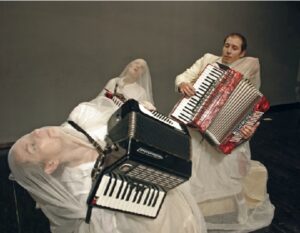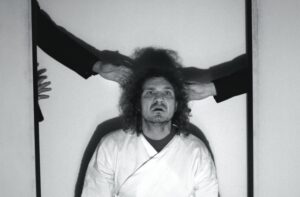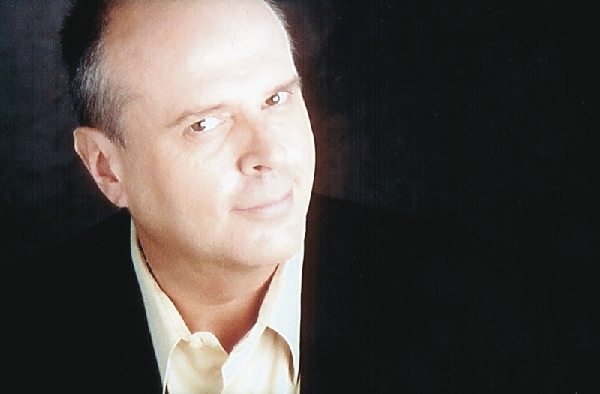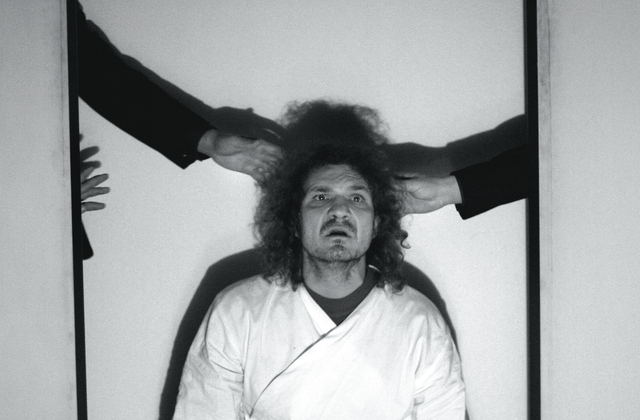Emmy winner Overton has long mined the political landscape for satirical treasures. Laughing at the powerful has often been dangerous (shout out to my Smothers Brothers), and the Free Speech Comedy Series seeks to provide a stage for speaking truth to power while making at least several audience members pee their pants.
See “Week One” description.
Credo The bastard child of George Carlin and Spalding Gray. What are you bringing? An edgy and moving true story of married nuns, neo-Nazis, drug smuggling and undying love. Why is the story you’re telling important? Because some people yearn to believe in something but have lost faith in religion, or relationships, or family. It’s for people who respect Jesus but are embarrassed of what his fan clubs have turned into. It’s for people who appreciate that solo theatre isn’t just someone having therapy on stage or a glorified standup act. I’m the child of an ex-nun and an ex-Franciscan brother doing a show that’ll offend all the right Christians and inspire the others.
What are you bringing? The Story of Tea takes as its point of departure the classic play by Anton Chekhov, Three Sisters . The play serves as a reference point, the frame that holds different stories and topics together. Trains and missing opportunities lead to missing people, missing languages and missing truths. This performance explores the meaning of memory in relation to the truth—especially harsh truth. What are the origins of your company? In our language, “DAH” means breath, spirit, movement of the air. We founded our theater in 1991, the year the civil war started in our country. Our world had been changed in a way we never expected to happen. Without wanting it, we became observers in that very particular kind of war that is civil war. From the very beginning of our work we had to face very hard questions: What is the role and the meaning of the theater? What is the responsibility and duty of artists in times of darkness, violence and suffering? Can art, can theater, be a tool for peace? These questions that arose from our experience of living in a war-torn country shaped our performances and the future of our life in the theater. What is different about performing as part of a festival? What does it allow you to do that is otherwise more difficult? It is very important to us to have a chance to meet our colleagues from different cultures, countries, traditions. Sometimes festivals invite artists only for a night or two and in that way do not leave time for the essence of the festival, which means to celebrate and be together. Revolutions is a an example of a good festival that wants to create a more meaningful event than just a one-night showing of the work.
Based on the German play Adam Geist by Dea Loher, Geist is the final creation of the late director Zygmunt Duczyński, the founder of Teatr Kana. This work is darkly, profoundly funny, exploring one man’s movement through guilt, loneliness and duress into an awakened consciousness.
See “Week One” description.







